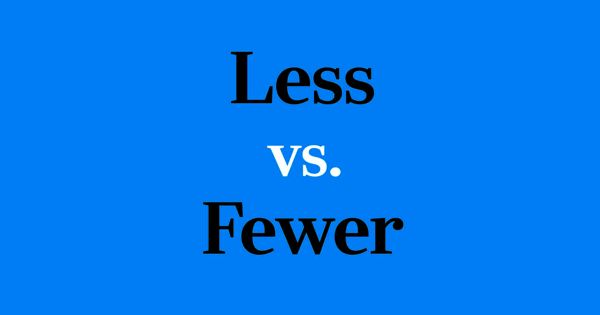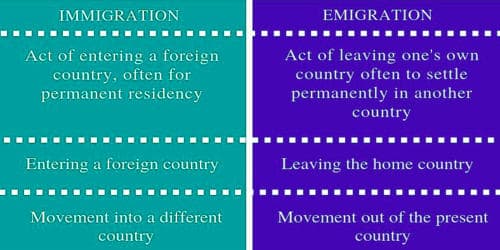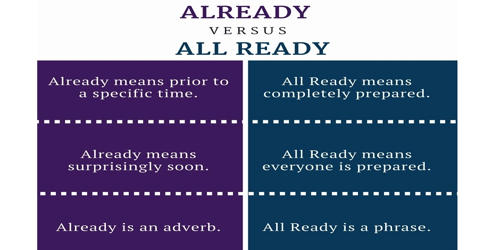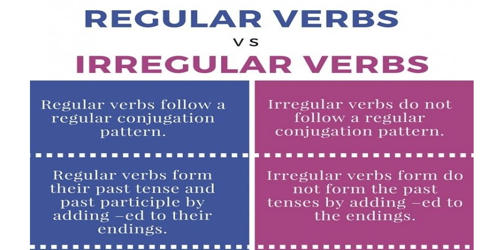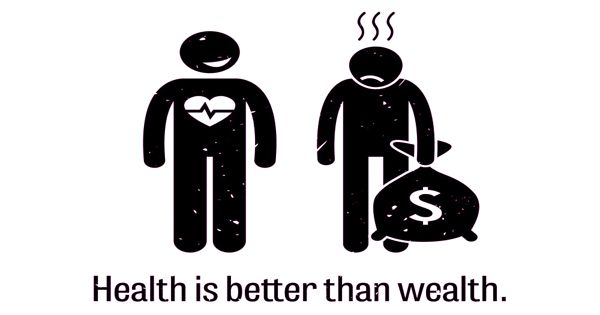The words “less” and “fewer” both mean the same thing; they are both the opposite of more. There’s a commonly repeated rule about fewer and less. Most of us do not understand where to use ‘less’ and ‘fewer’. These are the two comparative adjectives, which are used in a sentence, where a comparison of two entities is to be made. It goes like this: fewer is used to refer to number among things that are counted, as in “fewer choices” and “fewer problems”; less is used to refer to quantity or amount among things that are measured, as in “less time” and “less effort.”
Most of us do not understand where to use ‘less’ and ‘fewer’. We use less, as a comparative form of the word little, whereas fewer can be used as a comparative form of few.
We use quantifiers less and fewer to talk about quantities, amounts, and degrees. Less and fewer are comparative words. As both the two quantifiers mean a smaller amount of something, people get confused between the two easily. However, there is a difference between them, as in, you can use less when you are mentioning something which is uncountable or that does not have a plural. We use less, as a comparative form of the word little, whereas fewer can be used as a comparative form of few.
Difference Between Less and Fewer
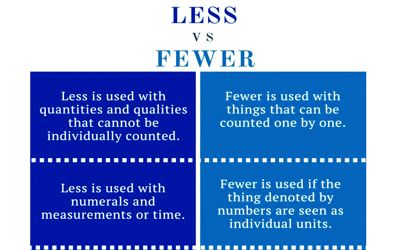
LESS
- Not as much. The term ‘less’ is a Germanic origin and it means ‘not as much’.
- The word ‘less’ is a quantifier, which is mainly used to compare two entities. As a determiner & pronoun, less implies ‘not as much’. If the word is used as a determiner & pronoun in a sentence, then it implies ‘not as much’, but when it is used as an adjective, it determines ‘something of lower importance’.
- When it comes to usage, less is primarily used with uncountable nouns or the things which are measurable or that does not have a plural.
- Less can also be used as an adverb, which indicates something of a smaller degree or extent. So, here we can say that less is used when things are measurable such as degree, value, or quantity, and also when nouns highlight an abstract whole as the exact number is not mentioned.
- Example: I like drinking cold drinks but only in less quantity.
FEWER
- Not as many. The term ‘fewer’ is also derived from German language and means ‘not as many’.
- As less, fewer is also a comparative adjective, which means ‘not as many. It can be used as a determiner, pronoun and adjective, to indicate a small number of something.
- When it comes to usage, we use the word fewer with countable nouns or things that have a plural.
- Fewer emphasizes number, i.e. how many people or things are there. It focuses on discretely quantifiable nouns or to refers things in the plural.
- Example: I had fewer glasses of cold drink today.
